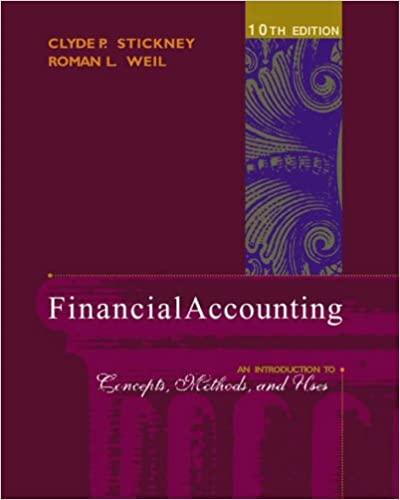Effects of leases on statement of cash flows. Refer to the simplified statement of cash flows in
Question:
Effects of leases on statement of cash flows. Refer to the simplified statement of cash flows in Exhibit 4.16. Nine of the lines in the statement are numbered. Ignore the unnumbered lines in considering the transactions below.
Assume that the accounting cycle is complete for the period and that a firm has prepared all of its financial statements. It then discovers that it has overlooked a transaction. It records that transaction in the accounts and corrects all of the financial statements. For each of the following transactions, indicate which of the numbered lines of the statement of cash flows change and the amount and direction (increase or decrease) of any change. Ignore income tax effects except when the problem explicitly mentions taxes.
For the following transactions, assume that the leased asset has an economic life of 10 years, costs \(\$ 100,000\), and requires lease payments of \(\$ 19,925\) per year, payable at the end of each year.
a. The lessor, using the operating lease method, records depreciation for the year.
b. The lessor, using the operating lease method, records receipt of a cash payment for the year. The lessor has not previously recognized revenue.
c. The lessee, using the operating lease method, records payment of cash for the year. The lessee has not previously recognized expense.
d. The lessee records the signing of a capital lease. The present value of the future cash payments when discounted at 15 percent is \(\$ 100,000\).
e. The lessee, using the capital lease method, records payment of cash for the first year and uses an interest rate of 15 percent per year. Interest is \(\$ 15,000\), and \(\$ 4,925\) is a payment of principal.
Step by Step Answer:

Financial Accounting An Introduction To Concepts Methods And Uses
ISBN: 9780324183511
10th Edition
Authors: Clyde P. Stickney, Roman L. Weil





